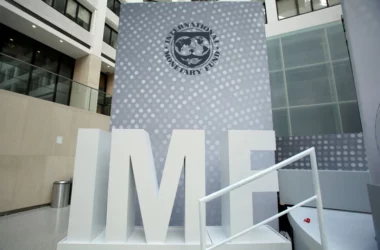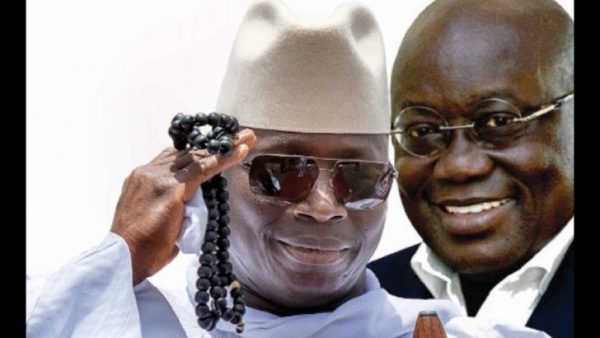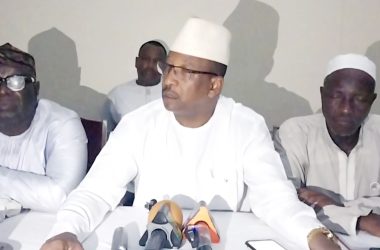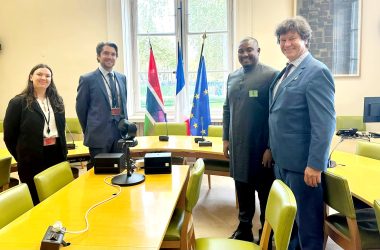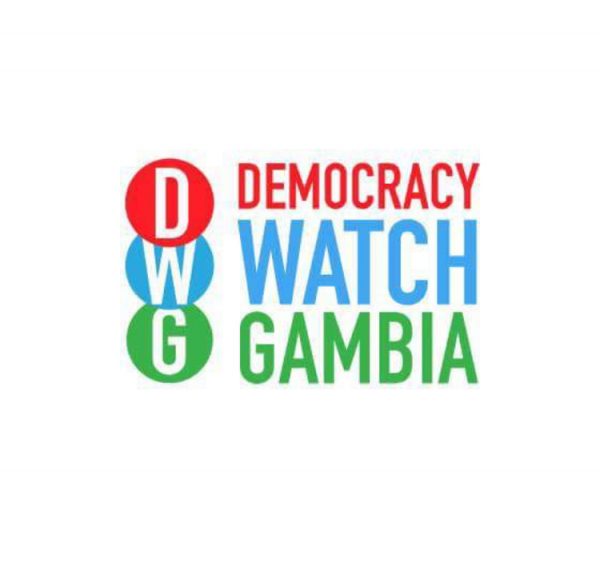
By Democracy Watch Gambia
The BBC documentary “Bringing Down Jammeh” depicts a very important period in the history of our nation, events which more often than not and for various reasons are never appropriately documented. It will be inappropriate not to commend Rogan Productions and its Client (the BBC) for the time, dedication and resources they invested in documenting such on this occasion. This is fully appreciated by the Democracy Watch Gambia (DWG).
Further to the above, it is DWG’s view that this documentary, for fairly understandable reasons and difficulties did not reflect the candid reality of the subject matter. We say this for a number of reasons:
Over Simplification of The Issues
The reasons highlighted as the catalysts leading to the fall of Jammeh were oversimplified and the case presented as if it all revolved around the murder of Solo Sandeng and its aftermath. Sandeng’s actions were no doubt heroic and his murder cowardly and very horrendous. Whilst we agree that this unfortunate event focused minds as to the dire necessity for change and the lengths to which the incumbent was prepared to go in order to ruthlessly decapitate any efforts geared towards deposing it from power, its representation as the sole driver of the change is a historical inaccuracy which must be rectified.
The 11th November 1995 summary executions happened less than a year before the ‘elders’ marched to the State House to ‘demand’ that the Armed Forces Provisional Ruling Council (AFPRC) Junta stay on, the Junta passing what later became the 1997 Constitution through a referendum and subsequently winning elections in 1996. The Coroner’s Inquest and its damning verdict following the April 2000 student massacres concluded in less than a year before the 2001 Presidential elections. The 2006 summary executions following the failed Coup happened few months before the Presidential elections. His re-election in 2011 was preceded by a 2 years long ‘witch hunting’ campaign in which hundreds if not more were rounded up, tortured etc.
The essence of the above historical commentary is to show that historically, Yaya Jammeh has within close proximity of all elections which he went on to convincingly win, committed heinous atrocities: murders, tortures and the lot. The Gambian voters, under Jammeh’s Alliance for Patriotic Reorientation and Construction (APRC) became totally numb and desensitised to his atrocities hence why in 22 years such never cost him electorally at all.
In light of the above, there is no evidence that the murder of Solo Sandeng and its aftermath had the impact and velocity in haemorrhaging support away from Jammeh in the manner represented in the BBC documentary. We must emphasise the point that the cowardly nature of Sandeng’s murder and the disdain with which his corpse was disposed of was accurately represented and rightly so. However, the impact this had on the fall of Jammeh was grossly overstated, something which is historically inaccurate.
Fundamental omission of Key Factors
Repression of Religious Autonomy:
A series of events rather than a single event and, a chain of reactionary measures led to the predictable but unexpected fall of Jammeh. These encompass significant sequence of events which were key drivers of Jammeh’s defeat. These were all totally omitted.
The invitation of Zakir Naik, who is totally opposed to the concept of secular democratic existence and, whose controversial public sermons were an uneasy consumption for most regardless of religious belief – they crossed over a line and verged on squalid intolerance, something which violated the Gambian spirit of tolerance and peaceful co-existence. The appointment of Naik as Presidential adviser on religious affairs and the subsequent unconstitutional declaration of The Gambia as an “Islamic Republic” exacerbated the above difficulties and alienated a significant number of Christian voters from among whom Jammeh enjoyed healthy electoral support.
Jammeh, if we can recall, having declared an “Islamic Republic” and adopted the title “Nasiru Deen” effectively began to dictate when and how certain Islamic rituals were to be conducted e.g. dictating to Muslims the start date of Ramadan and Eid (Koriteh) prayers were to be held. His pursuit and imprisonment of those who were deemed to not be complying with his religious instructions was vicious and did not even spare the elderly or Imams. This religious repression bred untold dissatisfaction and, it goes without even saying that such an attack on religious autonomy did put off a significant number of voters who went on to desert him.
The Mama Kandeh Effect:
Having formed his Gambia Democratic Congress (GDC) Party, Mama Kandeh a former APRC Member of Parliament took away not only ordinary supporters but created an asylum or a halfway house for renegade Jammeh loyalists who would otherwise not have left the APRC and for whom all the other opposition alternatives weren’t ones they would consider helping to win power.
The Diaspora Effect:

The Gambian Diaspora is one of the most (if not the most) politically active Diaspora community in West Africa. Since the late 1990s there was present in the Diaspora sufficient dissent and opposition from within the Gambian Diaspora to cause Jammeh headache. The more repression he radiates at home the more Gambians left to go into exile; inevitably his repression fed the growth of The Gambia Diaspora community which eventually became interconnected thanks to online radios and newspapers.
This interconnection, consolidated by social media, the advent of smartphones and a determination and commitment for change (any change) led to drives and initiatives such as the Gambia Democracy Fund which would later be the conduit through which donations would be made to fund the election campaign which would go on to depose Yaya Jammeh. The complete omission of the Gambian Diaspora in the undoing of Yaya Jammeh leaves a very big vacuum in the historical accuracy of the facts as represented in the documentary.
The omission of the above factors which were The Drivers of Yaya Jammeh’s fall from grace would indicate that the documentary has not really captured the historical accuracy of the subject matter it ought to have captured. This is no doubt an unintentional distortion of history but nevertheless it has to be pointed out and appropriately corrected.
Inaccuracy of Key Facts
The unintentional mischaracterisation of the key events which led to the formation of the Coalition falls just short of rendering the entire documentary something of a historical fiction drama.
It is inconceivable that the pioneers and financiers of the Convention which led to the formation of the Coalition (Halifa Sallah and his People’s Democratic Organisation for Independence and Socialism (PDOIS) ) were not featured, represented or even mentioned at all. It’s also amiss that the entire characterisation of how the Coalition was formed was a total mischaracterisation which distorts basic and obvious historical facts in respect of the same.
It is additionally vital to note that the Coalition which brought down Jammeh constituted seven opposition political parties. This fact was not represented at all nor any of these parties but one featured.
The United Democratic Party (UDP) from which President Barrow emerged had a long standing policy of not entertaining Coalitions of the sort which brought down Jammeh. Therefore, it was not surprising that they only joined the Convention talks at the 11th hour, compelled to do so by necessity. It is worthy of note that the UDP may highly likely not have taken part in these talks never-mind join the Coalition had their Executive members not been incarcerated by Jammeh and, in the absence of the ‘Absolute majority’ Constitutional requirement (which Jammeh conveniently amended to ‘First past the post’), there is every possibility that Yaya Jammeh would have emerged winner again in such a scenario.
The gross mischaracterisation of facts as to the formation of the Coalition is a historical error which we hope no future presentation on the subject matter will repeat – such has the effect of (albeit unintentionally on this occasion) rewriting and distorting the historical facts which underpin what is a very important event in the history of our nation as well as a landmark template of how to defeat dictators through legitimate democratic means. Such a historical moment must not be allowed to be inaccurately documented and, passively facilitating such inaccurate documentation is something which the Democracy Watch Gambia does not wish to be complicit in hence our constructive and humble submission herein.
In reality, the “bringing down of Jammeh” was not brought about by any single political force, group, individual action or event but by political compromise and innovative zeal on the part of the facilitators of the Convention and the Coalition (in the face of unimaginable hostility and gloom) and the subsequent consolidation of such noble efforts by the Gambian citizenry irrespective of political affiliation. This theme was unfortunately not represented in the BBC documentary and sadly, the quality of what was to be a gold standard historical masterpiece has become significantly diluted.
On this very subject, Rogan Production informed us that this Gambian story is extraordinary and they felt privileged to have been able to tell it. They were however not available for comments, reaction to the substance of this article.
However, notwithstanding all said herein, this documentary no doubt highlights the frustration of many Gambians in respect of President Barrow’s policy of surrounding himself with some of those who aided and abetted the vices which he was elected into office to fix. Additionally, in spite of all said, the dedication and effort of Rogan Productions and the BBC in dedicating time and resources to tell this unique Gambian story has got to be sincerely commended and applauded. We sincerely hope that this documentary is the first of many rather than a one-off stint.









